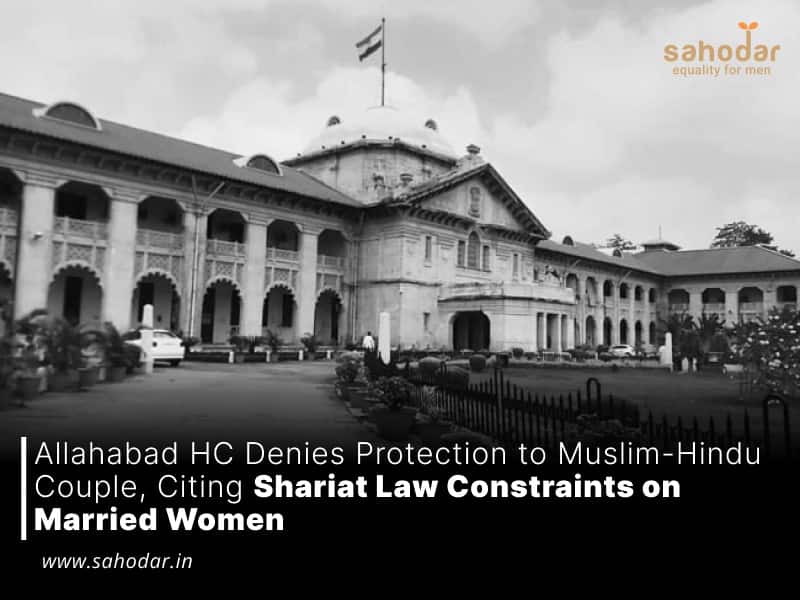The Allahabad High Court, ruling on a case involving a Muslim woman and Hindu man living together, said marriage places limits on a wife’s actions. As a result, the court declined to protect them from potential threats by the woman’s family.
A Single Bench of Justice Renu Agarwal observed, “From the factual matrix of the case it is apparent that petitioner no.1 is legally wedded wife petitioner no.2. She has not obtained any decree of divorce from the competent authority. She is living with petitioner no.2 in contravention of the provisions of Muslim Law(Shariat), wherein legally wedded wife can not go out side marriage and this act of Muslim women is defined as Zina and Haram. If we go to the criminality of the act of petitioner no.1 she may be prosecuted for the offence under section 494 and 495 IPC, as such relationship is not covered within the phrase of live-in-relationship or relationship in the nature of marriage.”
Attorney Fareed Ahmad represented the petitioners, while Additional Chief Standing Counsel Ashwani Kumar Tripathi acted on behalf of the respondents.
Case Overview: The petition aimed to obtain a writ order or directive mandating the respondents (the family and relatives) to cease disturbing the peace of the petitioners, a cohabiting couple, and to refrain from harassing them. Additionally, the petitioners sought legal intervention to ensure the couple’s safety. Involved in the case are a 44-year-old Muslim woman and a Hindu man over 36 years of age. It’s noteworthy that the woman was previously married to a Muslim man who later remarried.
Following her voluntary departure from her marital home due to alleged mistreatment by her father, the woman chose to live with her parents. Subsequently, she began living with the Hindu man, petitioner no. 2, in a live-in arrangement. Despite their efforts, the couple faced continuous interference from the woman’s family, raising concerns about their safety and freedom from potential threats. They sought protection from the Senior Superintendent of Police, but their request was unanswered, worsening their situation.
In this case, the High Court noted that the respondents argued that the woman’s ongoing marriage to Mohsin, without obtaining a divorce from her previous spouse, rendered her cohabitation with petitioner no. 2 an act of adultery, thus disqualifying their relationship from legal protection. Precedents such as the Supreme Court’s ruling in Kiran Rawat and Another Vs. State of U.P. and a Division Bench judgment of this Court in the matter of Asha Devi and Another Vs. State of U.P. and 3 Others were cited as grounds for opposing the petition.
“In the present case petitioner no.1 is Muslim by religion and she has not moved any application to the authority concerned for conversion of her religion under sections 8 and 9 of the Conversion Act. Hence petitioner no.1 is living in relationship with petitioner no.2 without obtaining divorce from her husband, that constitute an offence under sections 494 and 495 IPC and also without complying the provisions of sections 8 & 9 of the Conversion Act. Hence such type of criminal act cannot be supported and protected by the Court”, it held.

